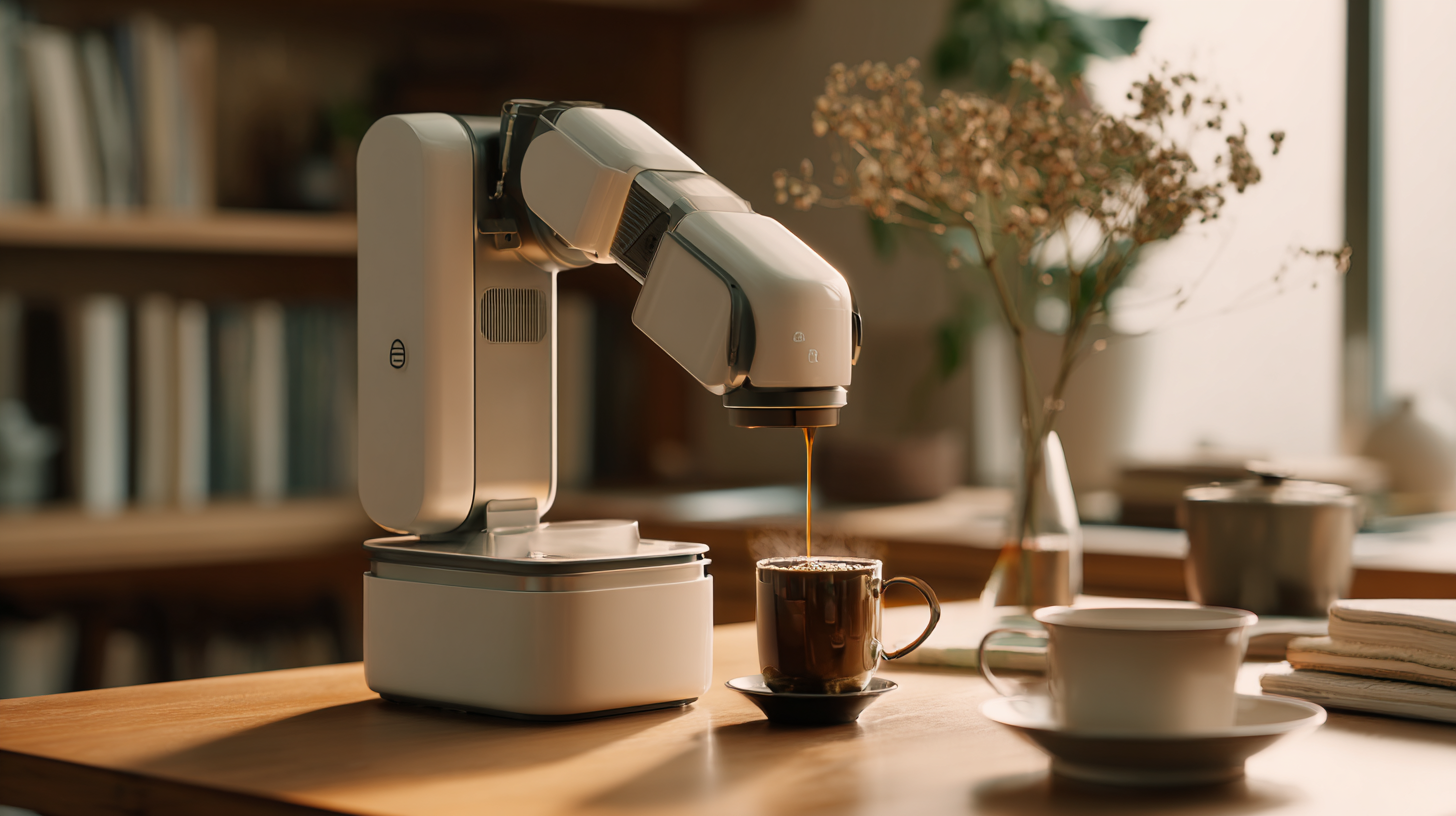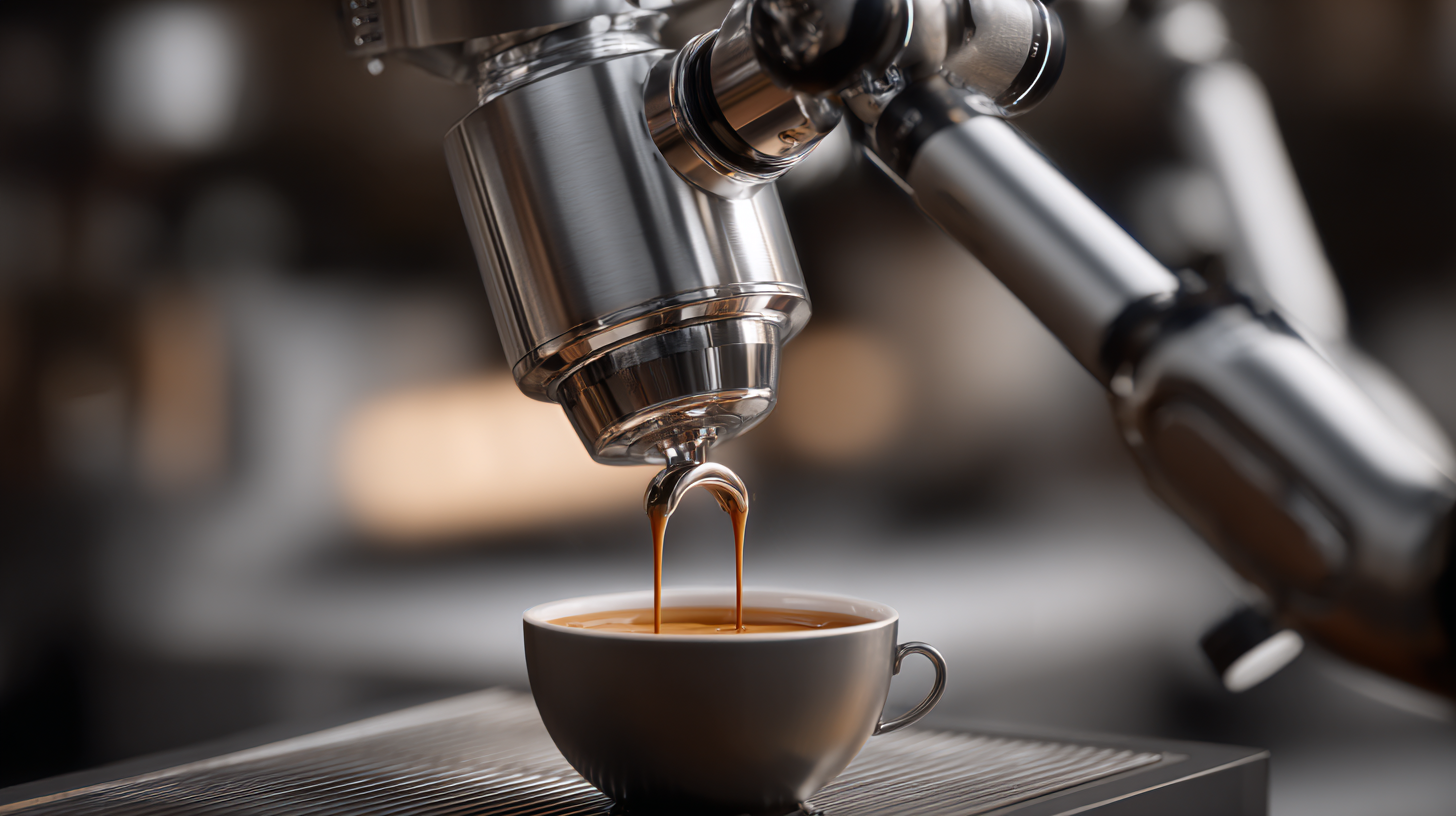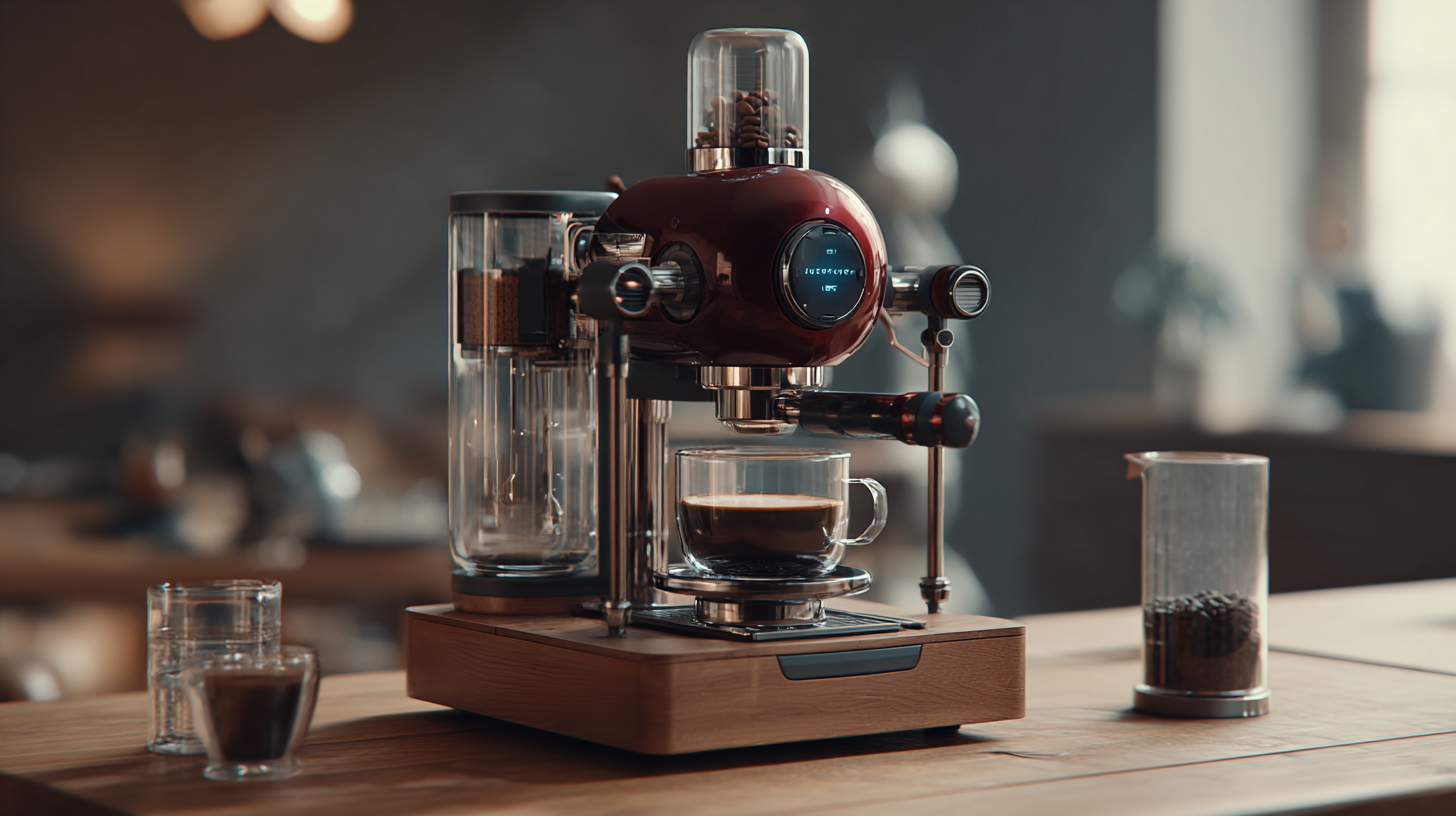The Future of Coffee Machines How Coffee Robots Are Transforming Your Morning Brew
The coffee industry is undergoing a seismic shift with the advent of technology, particularly evident in the rise of Coffee Robots. According to the International Coffee Organization, global demand for coffee is set to increase by 25% in the next decade, pushing manufacturers to innovate their brewing technologies to meet consumer expectations. This evolution is not just about convenience; it reflects a growing trend toward quality, consistency, and customization in the coffee experience.
Renowned coffee industry expert, Dr. Emily Tran, states, "Coffee Robots are revolutionizing our morning rituals by not only enhancing the brewing process but also by providing a personalized touch that traditional machines simply cannot offer." These automated machines leverage advanced algorithms and artificial intelligence to create a perfect cup tailored to individual preferences, paving the way for a future where coffee lovers can experience barista-level brews at home.
As Coffee Robots become increasingly integrated into our daily routines, the implications for both consumers and the coffee market are profound. As we delve deeper into this fascinating transformation, it is vital to explore how these innovations are shaping our coffee experience and the broader implications for the industry as a whole.

How Coffee Robots Are Redefining Your Daily Brew Routine
The rise of coffee robots is redefining our daily brew routine by combining technology with our cherished morning rituals. According to a report from Market Research Future, the coffee machine market is projected to reach $12 billion by 2025, with smart coffee makers leading the way. These innovative machines not only offer convenience but also the ability to customize brews according to individual preferences, providing a personalized touch that traditional brewing methods often lack. Coffee robots integrate with mobile apps and smart home systems, allowing users to program their machines for specific brew times, ensuring that their coffee is ready before they even get out of bed.
Tip: When investing in a smart coffee machine, consider one that offers integration with your existing smart home devices. This can enhance your coffee experience, allowing for seamless control and automation within your home.
Moreover, the advent of AI in coffee machines is revolutionizing flavor extraction techniques. Studies have shown that machines utilizing AI algorithms can adjust brew settings based on factors like bean type and freshness, promising optimal flavor with every cup. With features like pre-infusion and variable brew temperatures, these machines elevate the art of coffee making, making it accessible to all.
Tip: Experiment with different grind sizes and brew settings using your coffee robot for the best flavor. Small adjustments can lead to significant improvements in taste, turning a simple cup of coffee into a gourmet experience.

Exploring Smart Features in Modern Coffee Machines
In recent years, the American appliance market has witnessed significant growth, particularly in the small appliance segment. With the rise in consumer demand for professional-grade coffee experiences at home, the coffee machine sector is becoming increasingly competitive. According to industry reports, the coffee machine market is projected to reach over $5 billion by 2025, fueled by innovations in smart features and automation.
Modern coffee machines, like the latest intelligent semi-automatic models, are redefining home brewing. These appliances now come equipped with smart technologies, allowing users to adjust brewing parameters and access personalized recipes via smartphone apps. Furthermore, they often incorporate advanced brewing techniques such as pressure profiling and temperature control, which enhance the flavor and quality of the coffee produced.
**Tips:** When considering a new coffee machine, look for models with integrated smart features that allow for remote brewing and programmability. Also, choosing machines with a built-in grinder can significantly elevate your coffee-making experience, as freshly ground beans provide a richer flavor profile. Lastly, ensure that the machine offers easy maintenance and cleaning cycles to keep your brewing process hassle-free.

Step-by-Step Guide to Choosing the Right Coffee Robot for Your Needs
When choosing the right coffee robot for your needs, it's essential to consider several key factors that influence both the quality of your brew and your daily routine. Start by evaluating your coffee preferences—do you enjoy espresso, drip coffee, or specialty beverages? Different machines offer varied functionalities, so identifying the type of drinks you love will help narrow down your options. Additionally, consider the size and design of the coffee robot. A compact model may be ideal for smaller kitchens, while a more robust design can accommodate multiple brewing methods and larger capacities.
Another important aspect is the level of automation and technology. Some coffee robots come with advanced features like app connectivity, customizable settings, and self-cleaning functions. If you appreciate hands-on brewing or enjoy experimenting with different beans and brewing techniques, you might look for models that allow for manual adjustments. Budget is also a crucial consideration—coffee robots range widely in price, so determine what you're willing to invest in your morning coffee experience. By carefully assessing your preferences, available space, and desired features, you can choose the coffee robot that will elevate your daily caffeine ritual.
The Future of Coffee Machines: How Coffee Robots Are Transforming Your Morning Brew
| Feature | Description | Price Range | Ease of Use | Maintenance |
|---|---|---|---|---|
| Automatic Brewing | Brews coffee at the push of a button. | $100 - $500 | Easy | Low |
| Smart Technology | Connects to your smartphone for remote operation. | $200 - $800 | Moderate | Moderate |
| Grind and Brew | Includes built-in grinder for fresh coffee. | $150 - $600 | Easy | High |
| Single Serve | Brews one cup at a time, great for quick servings. | $70 - $300 | Very Easy | Low |
| Espresso Machines | Creates professional-quality espresso. | $300 - $2000 | Challenging | High |
Impact of Coffee Automation on Taste and Quality of Brewed Coffee
The emergence of coffee robots has revolutionized the way we experience our daily brew, pushing the boundaries of automation and enhancing the overall coffee-making process. With precise algorithms and advanced brewing techniques, these machines are capable of replicating the expertise of a seasoned barista. By controlling variables such as water temperature, extraction time, and pressure with remarkable accuracy, coffee robots ensure that each cup delivers a consistent flavor profile that might otherwise be challenging to achieve manually.
Despite the rise of automation, some coffee aficionados express concerns about the impact on taste and quality. While robots can replicate good brewing practices, there is an inherent subtleness in human touch that can influence a coffee's final character. The interaction of a barista with the ingredients—adjusting grind sizes or tweaking brewing parameters based on the day's coffee batch—offers a level of intuition and adaptability that machines currently lack. However, as technology advances, the gap between robotic brews and artisanal craftsmanship may narrow, potentially leading to an era where automated systems not only match but surpass traditional methods in providing an outstanding coffee experience.
Future Trends: What’s Next for Coffee Technology and Home Brewing
As coffee culture continues to flourish, the global coffee machine market is projected to grow significantly, valued at $7.05 billion in 2023 and expected to reach $7.36 billion by 2024. This indicates a compound annual growth rate (CAGR) of 5.10% over the forecast period. The increasing demand for coffee consumption among households is a driving force behind this expansion, as more consumers seek convenient and high-quality brewing solutions at home.
Emerging technologies in coffee machines, particularly the integration of smart features and robotics, are reshaping the way we enjoy our morning brew. From automatic grinding and brewing to personalized coffee profiles, these advancements promise to enhance the user experience dramatically. Furthermore, the rise in coffee aficionados is encouraging manufacturers to innovate continuously, offering machines that cater to the diverse preferences of coffee drinkers, which is expected to further drive the market's growth in the coming years.
